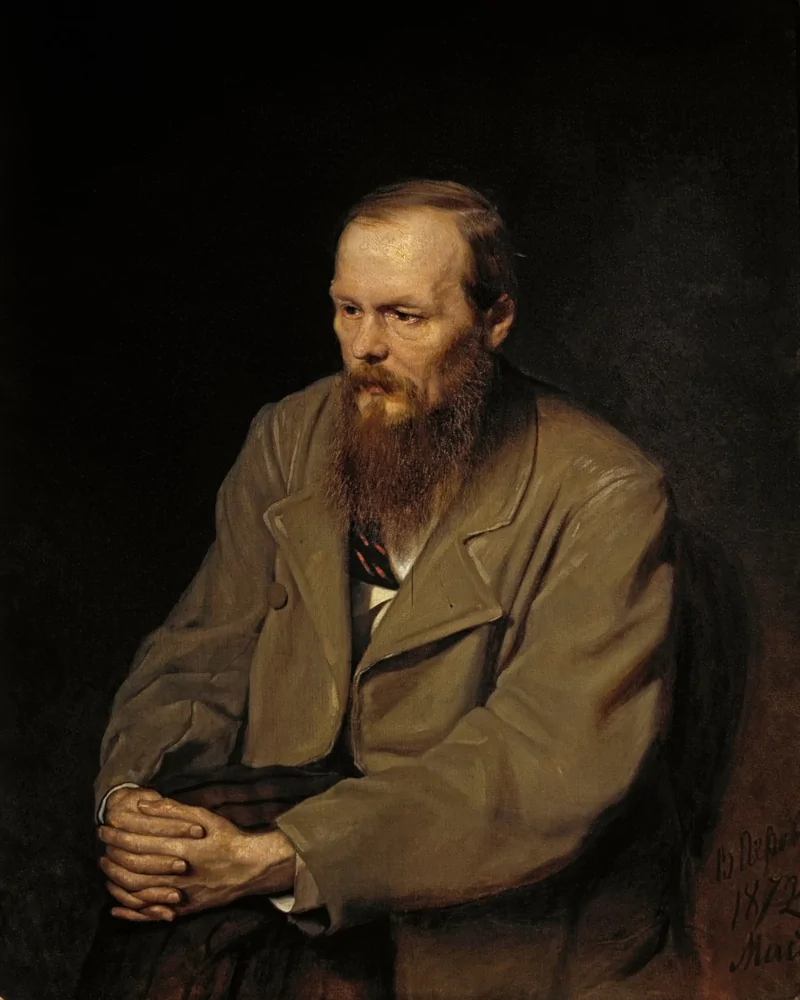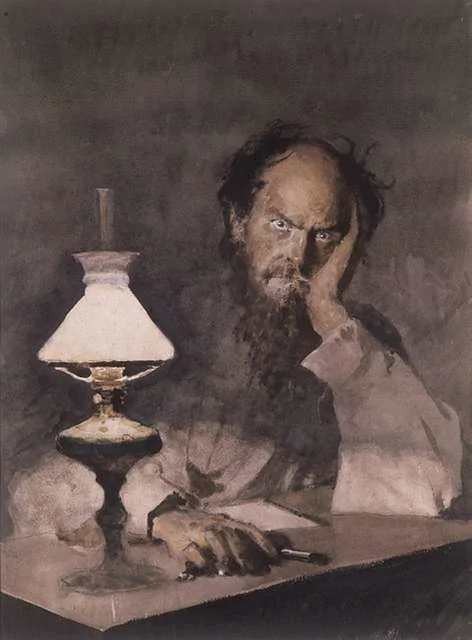
Vasily Perov (1833–1882), Portrait of Fedor Dostoyevsky, 1872. Oil on canvas, 99.6 × 81 cm. Tretyakov Gallery, Moscow.
Fyodor Dostoyevsky is everywhere in the book, from "the world I entered—naïve, yet unwavering—drawn to a land where the ghost of Fyodor Dostoyevsky still roams, his fists clenched, his teeth bared" over the lure that "drawn (me) into Nastassia's strange, mystical world; there was Russia in her, that mythical country of Dostoyevsky and Gulags, a vast, wide esoteric land filled with beauty and pain," all the way up to his famous Kirillov character. The Raven's Enigma is haunted by the Dostoyevsky ghost.
The murder that inspired Dostoyevsky to write Demons was a real-life event—the killing of Ivan Ivanovich Vasilyev, "Ivanov" in the novel, by members of a revolutionary group called Nechaevshchina ("Nechaevism" or "the Nechaev affair"), led by Sergei Nechaev. The 1869 political murder, meant to serve as a brutal warning to others in the group about the consequences of disloyalty or hesitation in the revolutionary cause, horrified Russians. In his novel, Dostoyevsky introduces the absurd yet tormented character of Kirillov, who questions the meaning of life and, as Albert Camus wrote, shifts our attention from revenge to the question of revolt.

Kirillov Before Suicide
And yet, someone once wrote an essay claiming that Dostoyevsky had portrayed Kirillov as drinking so much damn tea, concluding that Kirillov's tragic end was emblematized by his endless tea-drinking. This seems like a poorly written joke, as it trivializes the profound psychological and philosophical depth Dostoyevsky imbues in his character. That overweening nonsense, which somehow managed to reference both January 6th and Adolf Hitler, miffed me for a second, but then it reminded me of a strange dream I once had—I dreamt of a novel that used Dostoyevsky's works, in their entirety, as footnotes. I had problems with formatting and squeezing 896 pages of The Brothers Karamazov into one single footnote.
Speaking of Dostoyevsky, only Bulgakov could have come up with this dialogue—when Behemoth, a demonic black cat as large as a warthog, and Korovyev, Woland's mischievous assistant and translator, were seeking entry at The Griboedov House, the fabled and coveted restaurant for writers:
"You're not Dostoyevsky," said the citizeness, who was getting muddled by Korovyev.
"Well, who knows, who knows," he replied.
"Dostoyevsky's dead," said the citizeness, but somehow not very confidently.
"I protest!" Behemoth exclaimed hotly. "Dostoyevsky is immortal!"
"If anything in this life is certain, if history has taught us anything, it is that you can kill anyone."
— Don Michael Corleone